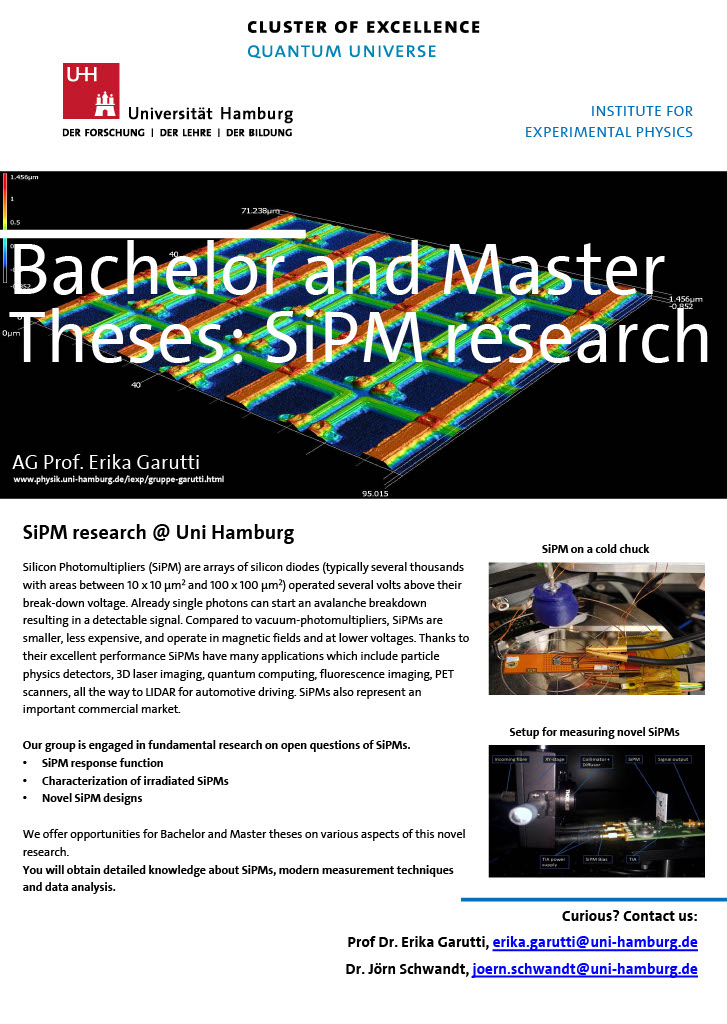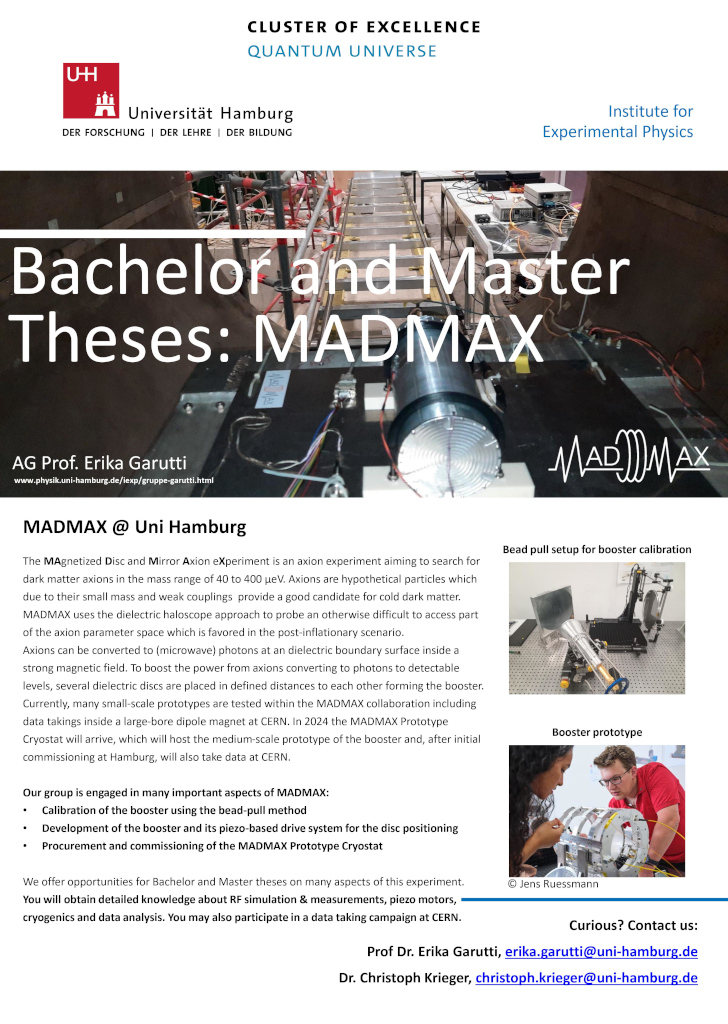Open Positions
The currently available topics for students are in the frame of the High-D consortium, the CMS tracker upgrade, and of the MADMAX experiment.
To find out more about open positions have a look at our posters below
or the fields of work described in the subpages of this category.
Contact us for more details.


